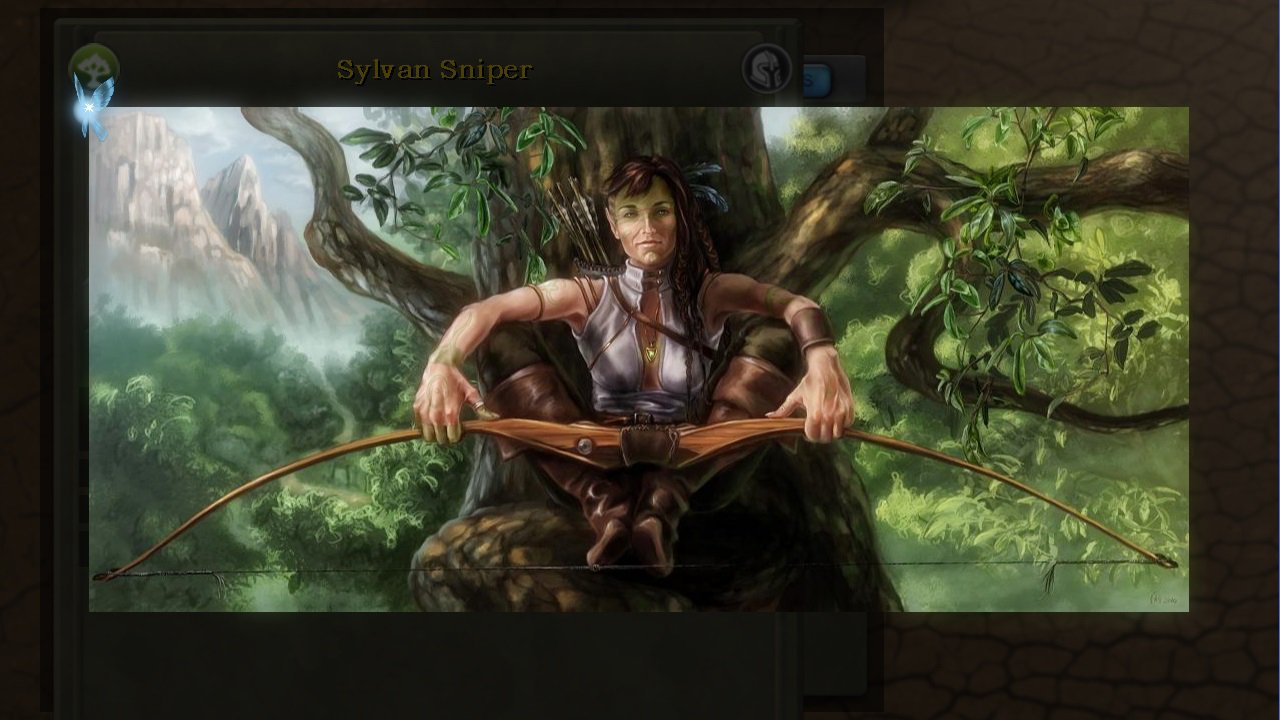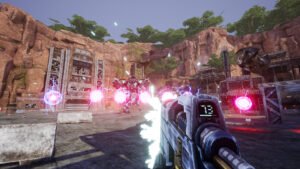Card games have been a part of my life since I was five-years-old. My joy for collecting and playing started with Pokémon, grew into Yu-Gi-Oh! and eventually, I made my way to the Magic: The Gathering scene. Now these games support their own digital clients and even new games like Hearthstone have emerged to claim their stake on the mobile market. The Toronto indie developed card game, Grid Legion Storm, may lack the benefit of any established media to work off of to create a powerful playerbase, but its unique gameplay and sheer depth are sure to entice any competitive card game player into giving the new title a shot.
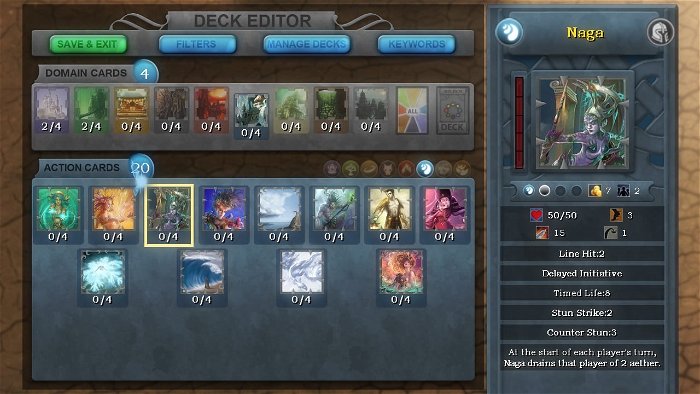
The objective of Grid Legion is standard fare for the genre: draw cards, summon units and attack your opponent’s life points until they reach zero and you win the game. What makes Grid Legion stand out from the pack, as a MOBA inspired card game, is the interactive battlefield. As you deploy units onto the lanes of the field, you begin to notice that each tile around you has different effects, some increase movement speed, others yield resources and some can be captured to create advantageous situations for the player. In order to win you can’t just focus on luck or drawing the best card your deck can muster; you have to be wary of everything positioned on the board and develop a powerful strategy to outwit your opponent.
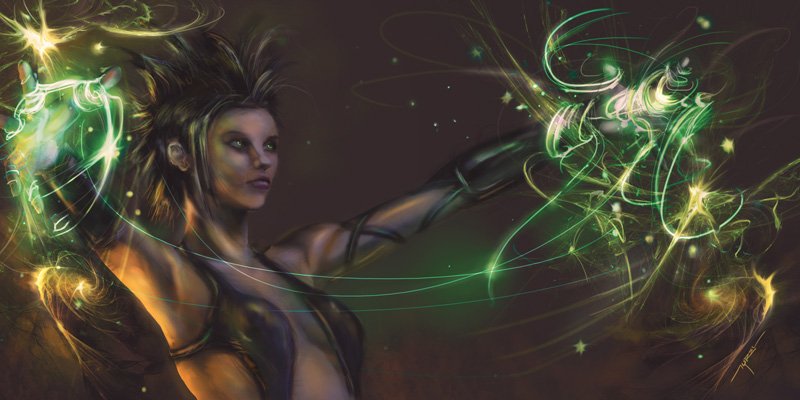
Instead of using mana as the key resource of the game like M: TG, Grid Legion has two resources you have to balance: gold and aether. Gold is the resource that allows you to play your cards and create reserve units to place on the grids of the field, while aether is the resource that allows you to draw from your deck. Each of the economic resources are given out at the start of a turn, but in order to fuel your best plays you will need to create more economic advantage than your opponent by capturing goldmines and using your unique unit abilities to weaken their resources. Economy is just another level of the depth to battles in Grid Legion that makes the game feel so involved at each stage of the battle. The opening of the game is key because you want to establish as much advantage as quickly as possible, the mid-game has you defending your mines as you begin stockpiling resources for ambitious plays, and the end-game is when you unleash your game winning strategies.
Unlike other titles that make you buy randomized booster packs to hopefully get the most rare and most powerful cards, every card in Grid Legion is provided to the player with their initial purchase. You can mess around with any of the games nine key domains in the deck editor and combine their strategies together to create unique synergies. If you’re a player who loves the versatility of ranged units, then you’re probably interested in playing with cards from the Sylvan domain with their elven archers and sorcerers. If you love playing cheap undead units that can resurrect after their killed, then you’re more prone to playing cards from the demonic domain. Every playstyle a competitive card game player could dream of using is incorporated when you combine together the various domains of Grid Legion.
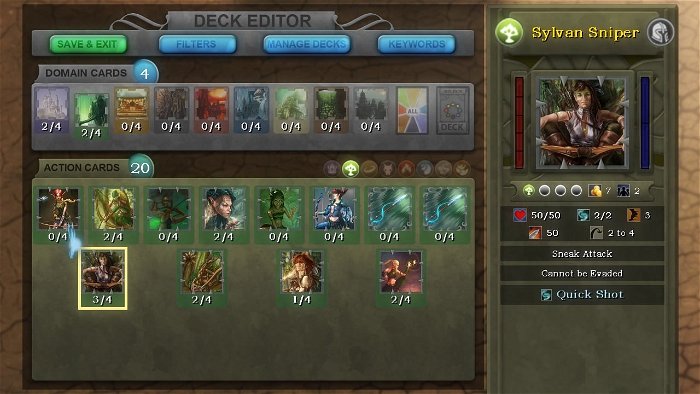
While a lot of these features probably sound great to veterans of the competitive scenes, I can’t help but feel that providing a first-time player with so much content at launch will cause them to feel overwhelmed by the amount of micromanagement they have to handle. Throw in a sizeable amount of card effects they have to learn and I don’t believe even the provided strategy guide will be enough to calm frustrations. While more newbie friendly features such as an interactive deck-building guide will be added as the game picks up sales, the success of Grid Legion at launch is banking on veterans of other card games to pick it up and give it a chance.
For only being made by a handful of guys at Wind Jester Studios, Grid Legion has so much content and mechanics enveloped within it that it’s easy to see the potential the game has to develop into a competitive eSport. It won’t happen as fast as other games, but with a growing playerbase and an involved developer at the helm that shows care in updating the game and tweaking imperfections, Grid Legion is a card game that could take the world by a slow yet powerful storm.
